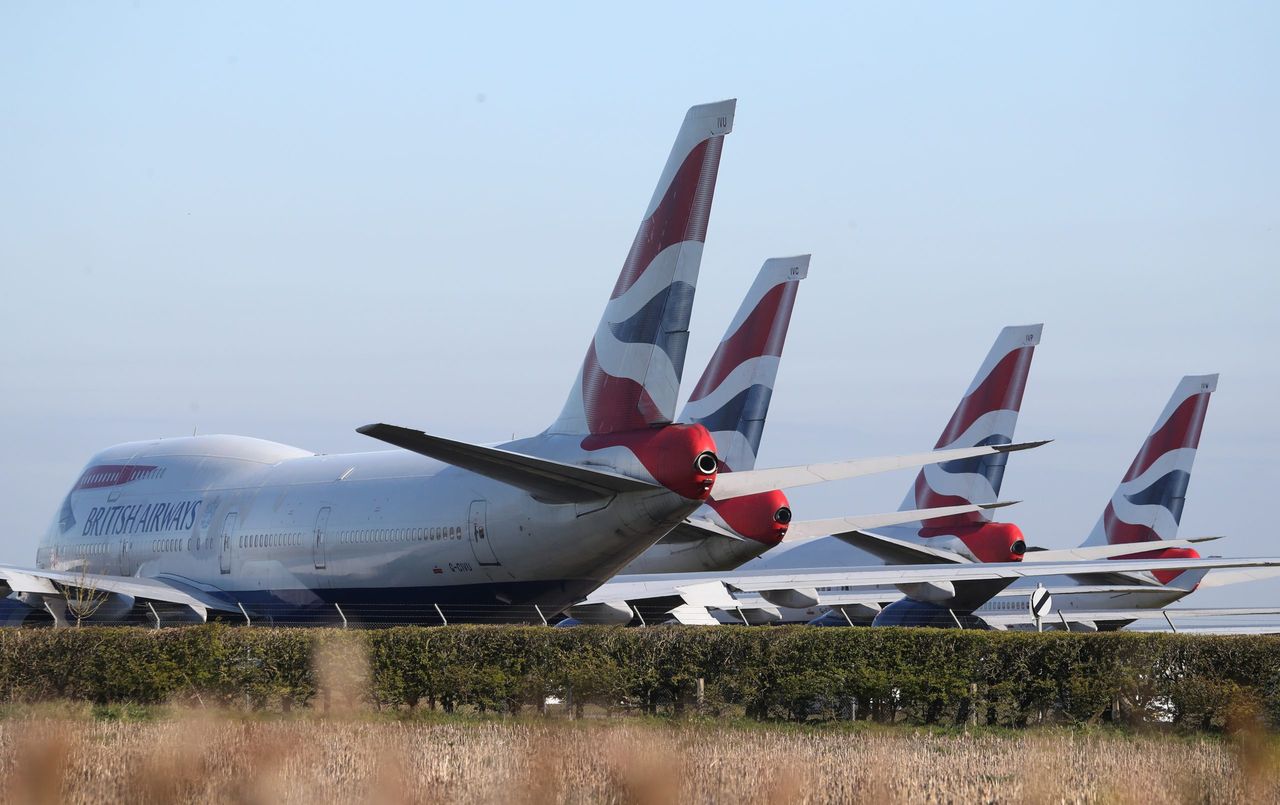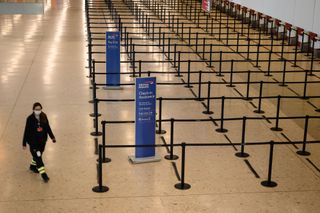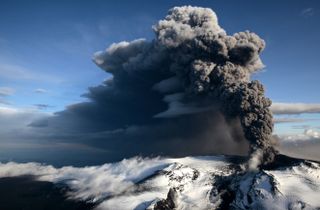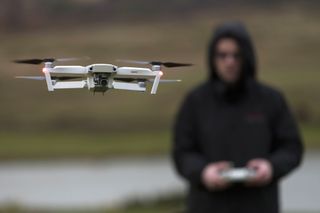Has coronavirus permanently changed the way we fly?


Just as our streets and roads are now relatively empty, look up, and you’ll see so are our skies. Thousands of aeroplanes are now grounded around the world.
Once full with planes travelling all over Europe and beyond, taking us on holidays, business trips and back and forth between homes and work, there’s no doubt we were once an internationally connected world, reliant on our ability to travel between countries by plane in a matter of hours.
On average, there would be almost 200,000 planes in our skies every single day. Now, because of the coronavirus outbreak, the world is quickly adjusting to a different reality, with empty airports and increasingly empty skies, as the majority of airlines across the globe ground their fleets.
When the COVID-19 virus first started making headlines across the world in January 2020, nobody knew the impact it would eventually have on our everyday lives in the UK. One of those dramatic changes is our freedom of movement – even leaving our homes has become restricted, let alone our ability to travel between countries.

By mid-March, millions of passengers had their holidays cancelled as travel bans were imposed in hard-hit countries like Italy and Spain. The US banned all passengers from almost every European country from entering, and by the end of the month, 30 per cent of planes worldwide were no longer flying, with the majority of citizens in Europe banned from non-essential travel.
Airlines like Easyjet have since announced they’ve grounded their entire fleet, while British Airways has been forced to temporarily suspend 36,000 (80 per cent) of its staff. The World Travel and Tourism Council warned the pandemic could cut 50 million jobs worldwide, and once the outbreak is over, it could take up to 10 months for the industry to recover.
‘The virus could permanently change how we travel’

Consumer expert Jane Hawkes says the COVID-19 crisis will change air travel as we know it forever.
GoodtoKnow Newsletter
Parenting advice, hot topics, best buys and family finance tips delivered straight to your inbox.
‘In the short term, reduction of routes and increased travel restrictions has and will continue to impact on bookings and associated revenue. Once parked up for a certain set period, planes then require extensive testing and checking, hence why some airlines are continuing to fly for maintenance purposes. Staff retention costs are ongoing as when industry restarts then there needs to be a workforce ready to go.
In the medium term, there will be much less leisure travel due to households cutting back on finances, and the long-term effects could be considerable, with more companies finding alternative ways of conducting business.
The demand for flights will therefore be much reduced for the foreseeable future, if not permanently, as companies reap the financial benefits of reduced travel and seek to reduce costs to make back losses incurred during this period.’
Other issues that have impacted air travel in recent years
Yet, this isn’t the first time we’ve seen international travel grind to a halt.
Ten years ago this month, in April 2010, a volcano erupted in Iceland, throwing thousands of tonnes of mineral ash into the air. Ash clouds can erode metal, plus clog fuel and cooling systems, and so spell disaster for aircraft, so governments across northern Europe were forced to halt scheduled flights.
This was quickly followed by Ireland, Spain and Germany, and the disruption lasted around a month.

Between 14 and 20 April 2010, large areas of sky in northern Europe were covered in ash after a huge volcanic eruption in Iceland. Around 20 countries were forced to close their airspace due to fears that the ash could severely damage the engines of planes, making it too dangerous to fly.
The shutdown is thought to have affected 10 million people as an entire continent was grounded. The global airline industry lost more than £130 million a day because of the disruption, including British Airways, which reported losses of £20 million a day.
The ash cloud essentially brought Britain’s air transport network to a halt in the largest shutdown since World War Two. The disruption lasted well into the following month and the disaster wasn’t declared officially over until October 2010.
Deadly tsunami

At 8am local time (1am UTC) on Boxing Day in 2004, a 9.1 magnitude earthquake struck off the north coast of Indonesia. The third biggest ever recorded, it lasted 10 minutes and triggered a massive tsunami across the Indian Ocean.
It was thought to be one of the deadliest tsunamis in human history, with waves of up to 100ft tall washing over entire towns and cities across 14 countries in Asia and Africa, and killing an estimated 230,000. Although travel was severely disrupted in the weeks following, with package-holiday companies cancelling trips to affected areas, the airline industry played a central role in getting stranded holidaymakers back to home.
Getting the tourism industry up and running again to help the crisis was also seen as fundamental in pumping money back into the economy, so people were able to fly to many of the affected locations within months.
Drone delays

Between 19 and 21 December 2018, hundreds of flights were cancelled at Gatwick Airport after a drone was spotted. Around 1,000 flights were cancelled or delayed and Sussex Police later arrested two people who lived nearby, however they were later released without charge. It cost the airport and airlines around £50 million in lost revenue and passenger-care costs.
The enviromental impact
In the fight to combat climate change, environmental campaigners have said air travel is one of the most damaging activities we can do when it comes to hurting our planet. Air travel is thought to be responsible for around 5% of global warming, and levels of air pollutants and warming gases over some cities and regions are already showing significant drops as COVID-19 changes the planet.

Frances has been a journalist for 18 years. Starting out on her local newspaper, she has always had a passion for human interest stories. In recent years she has been devoted to writing the gripping, sometimes heartbreaking, but often life-affirming stories of real people for women's magazines, including Woman's Own, Woman and Chat. She also writes about health, beauty, crime, parenting and all the many issues affecting women in today's everchanging and complex world. Frances has also spent time working on newspapers abroad, including Spain and the Middle East where she was a passionate advocate for animal rights and giving a voice to those who didn't have one.